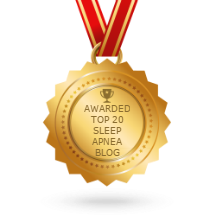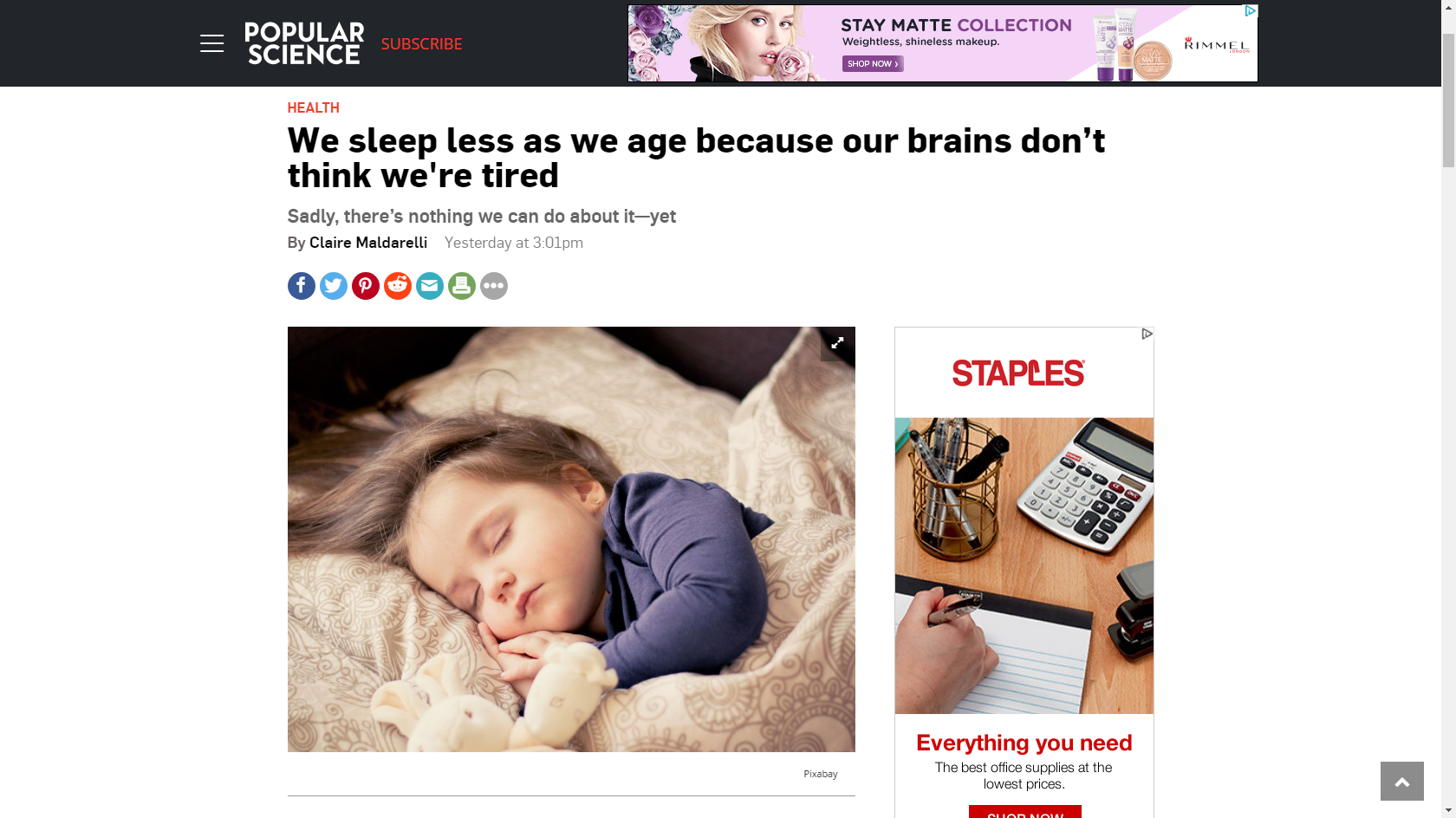
Ever Wonder Why You Sleep Less As You Get Older?
It’s a known fact that as we age, we sleep less. But the reasoning behind this phenomenon is poorly understood. Do older adults sleep less because they need less sleep, or because they simply can’t get the rest they need?
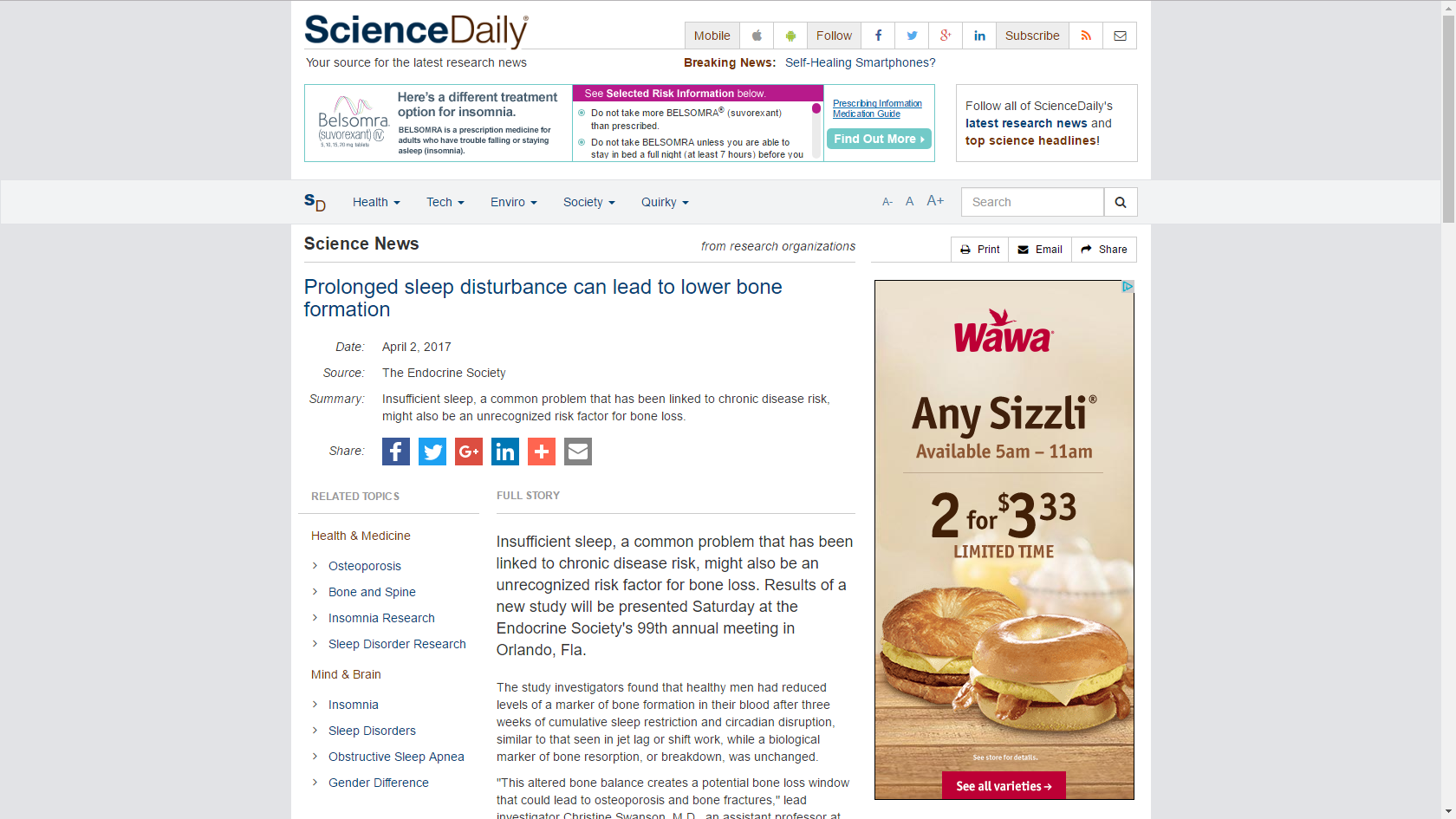
Inconsistent Sleep Can Eventually Cause Loss Of Bone Formation
Insufficient sleep, a common problem that has been linked to chronic disease risk, might also be an unrecognized risk factor for bone loss. Results of a new study will be presented Saturday at the Endocrine Society’s 99th annual meeting in Orlando, Fla.

Sleep Apnea Treatment May Decrease Nightly Trips To Bathroom
MONDAY, March 27, 2017 (HealthDay News) — Millions of Americans battle bothersome nighttime conditions, such as sleep apnea or the need to get up frequently to urinate.
Now, new research suggests that treating the former condition with CPAP “mask” therapy might also help ease the latter.
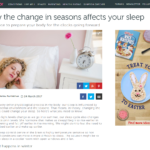
Sleep Can Be Affected By The Changing of Seasons
Sleep Can Change With the Seasons
Like every other physiological process in the body, our sleep is influenced by the external environment and the seasons. That means, in theory, changing the clocks could change your sleeping patterns. So here’s what you need to know:

Sleep Calculator Figures Out When You Should Go To Bed
Whether you count sheep, meditate or fall asleep in front of the television, we all have our own special bedtime routines.
Getting to sleep of an evening is, however, perhaps much more complex than you might think.
And some of you may actually be getting the whole process all wrong.
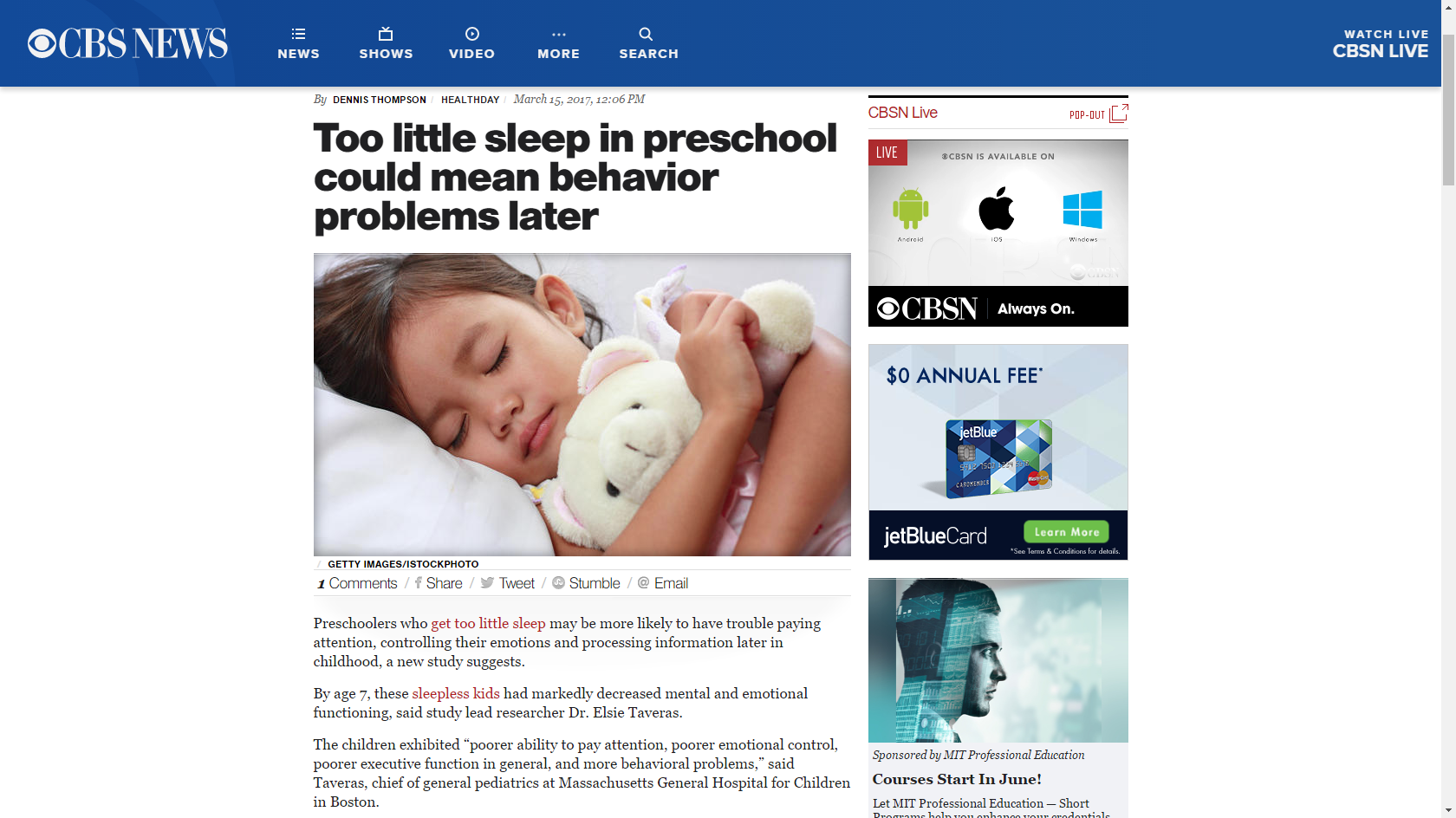
Lack Of Sleep In Preschool Could Mean Future Behavior Problems
Preschoolers who get too little sleep may be more likely to have trouble paying attention, controlling their emotions and processing information later in childhood, a new study suggests.
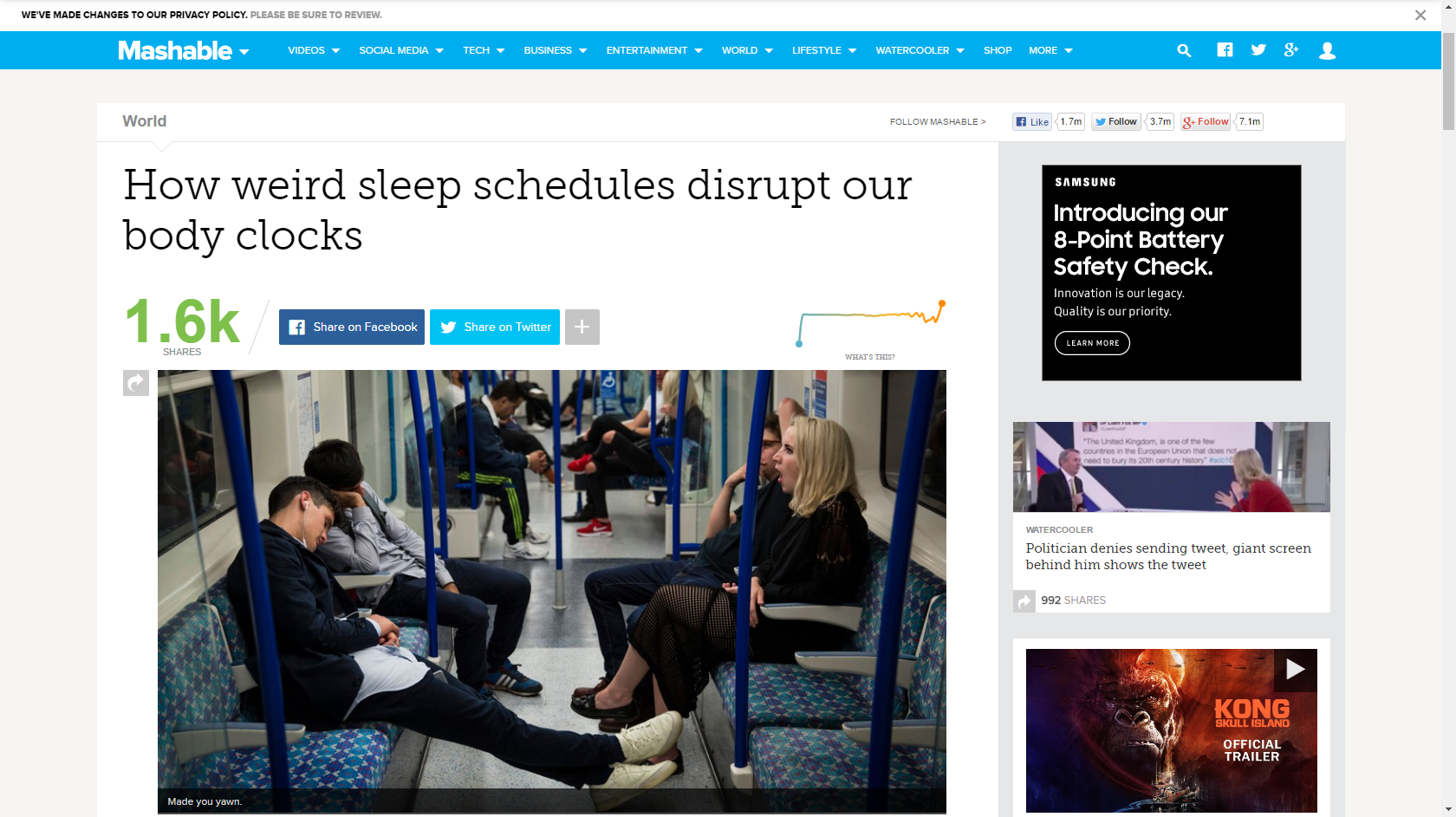
Sleep Schedules Can Lead To Mental, Physical Illnesses
Much like a clock on the wall, our cells have their own 24-hour timeline. When they’re in sync, our body clock may act as a protective barrier against mental and physical illnesses.
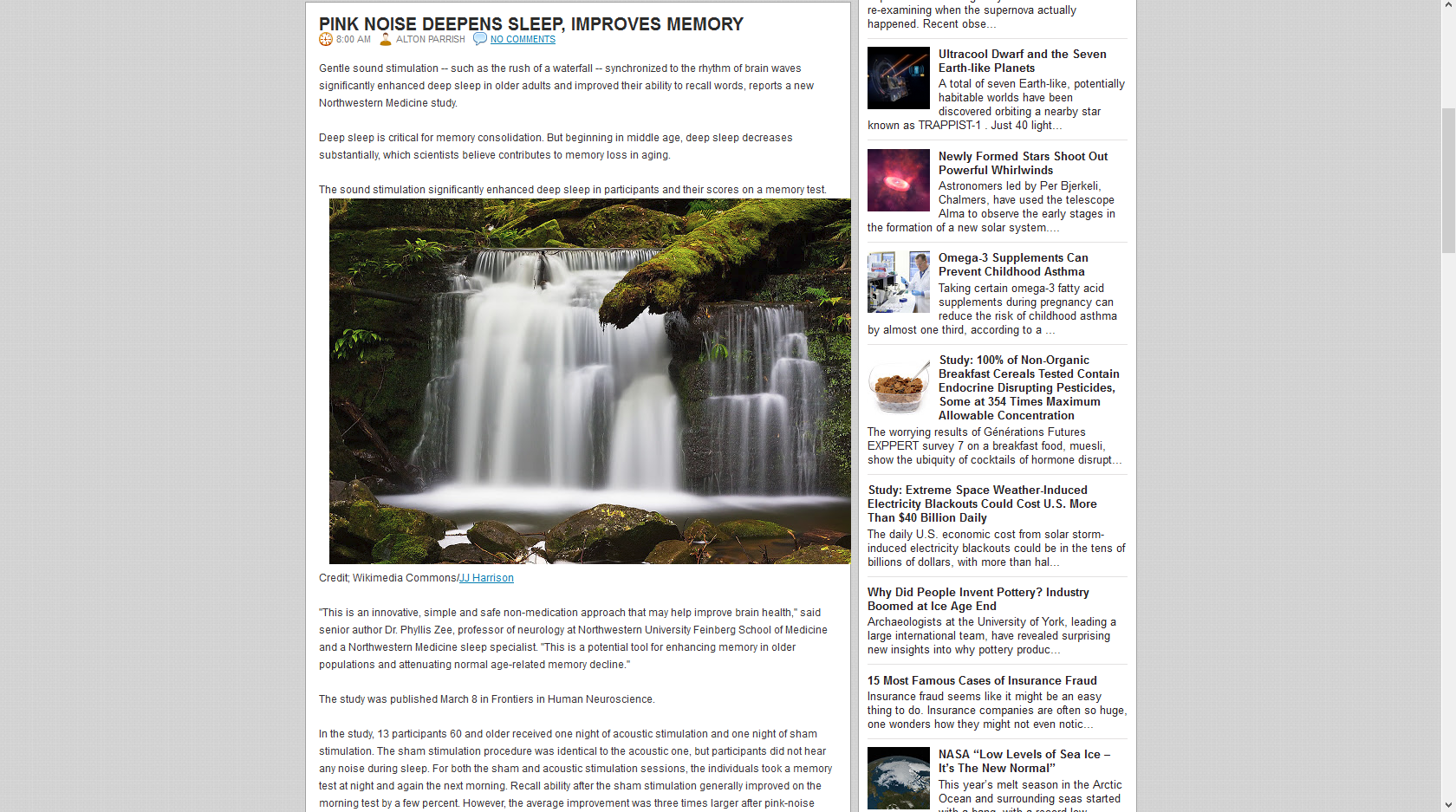
Looking To Improve Your Deep Sleep? Here’s How You Can
Gentle sound stimulation — such as the rush of a waterfall — synchronized to the rhythm of brain waves significantly enhanced deep sleep in older adults and improved their ability to recall words, reports a new Northwestern Medicine study.

Daylight Saving Time Doesn’t Mean You Have To Lose Sleep
SALT LAKE CITY, March 8, 2017 /PRNewswire/ — As most of the United States returns to Daylight Saving Time (DST) on Sunday, March 12, we spring forward and advance our clocks one hour. For the one in three American adults who are already sleep deprived, losing an additional hour of sleep over the coming weekend can have a damaging effect on their sleep patterns.
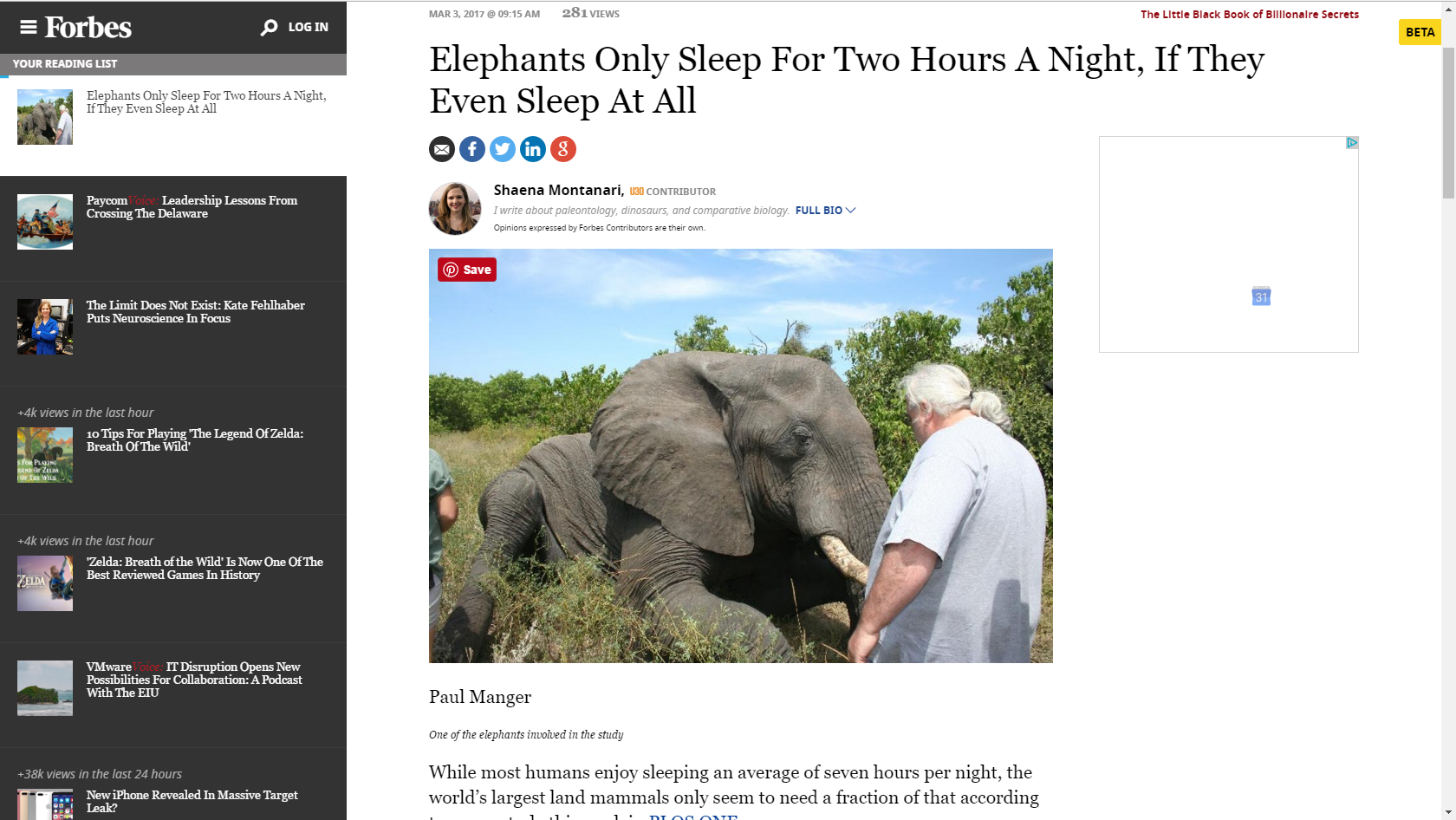
Elephants Get Very Little Sleep: How Much Will Surprise You
While most humans enjoy sleeping an average of seven hours per night, elephants, one of the world’s largest land mammals, only seem to need a fraction of that according to a new study this week in PLOS ONE.

